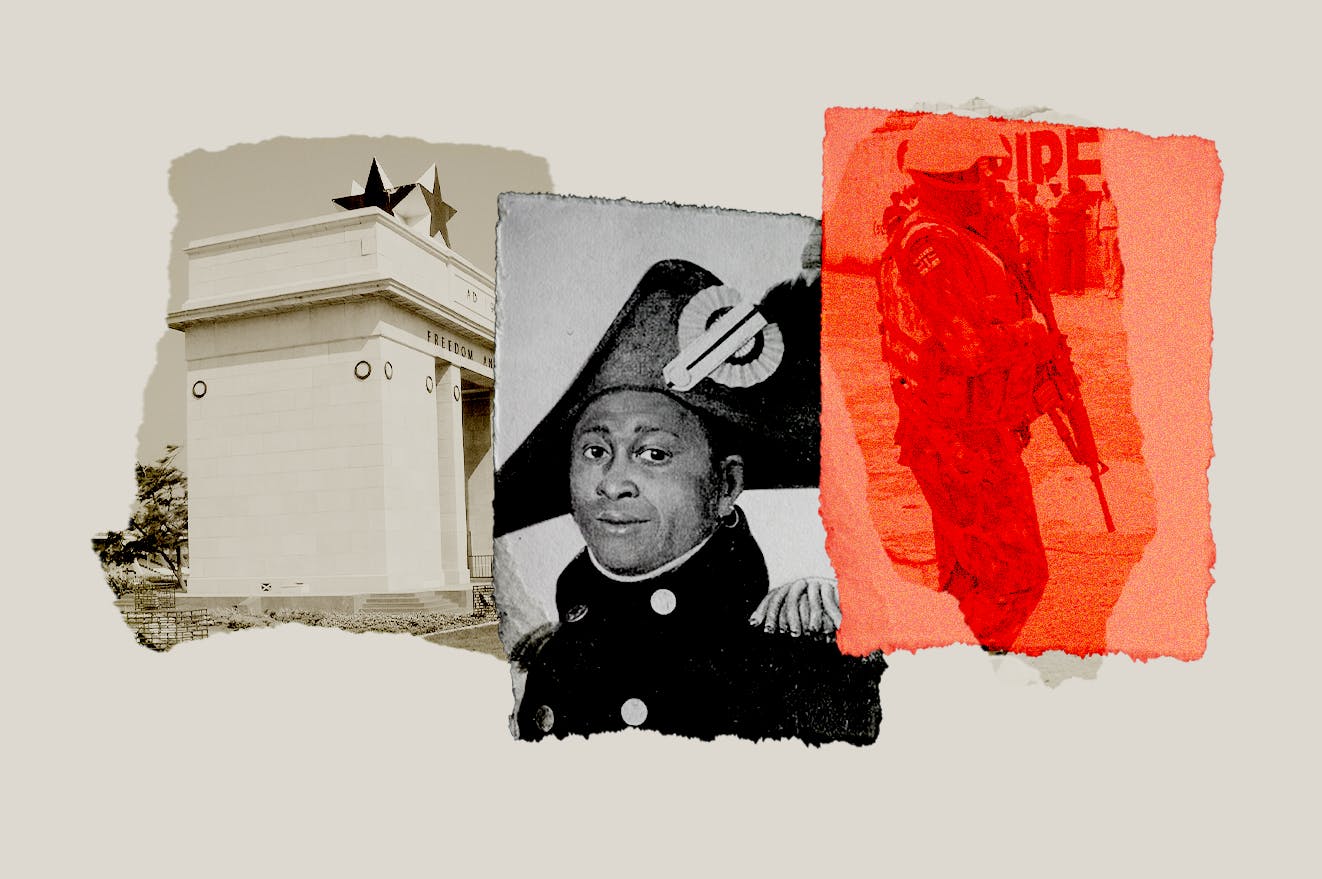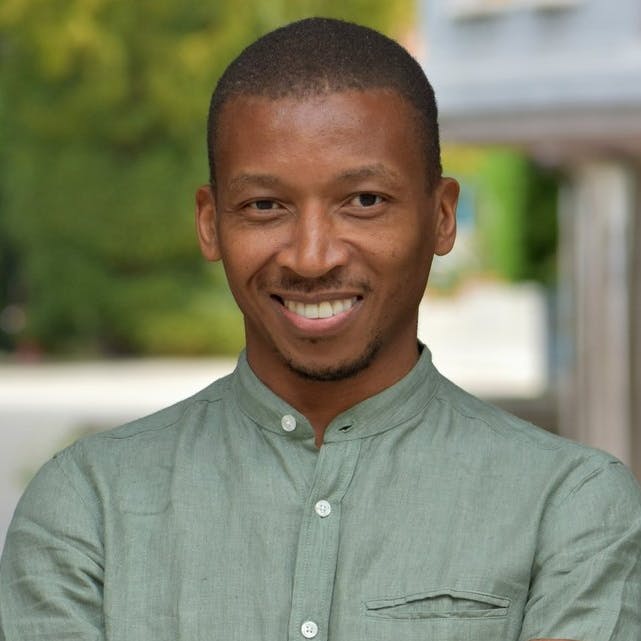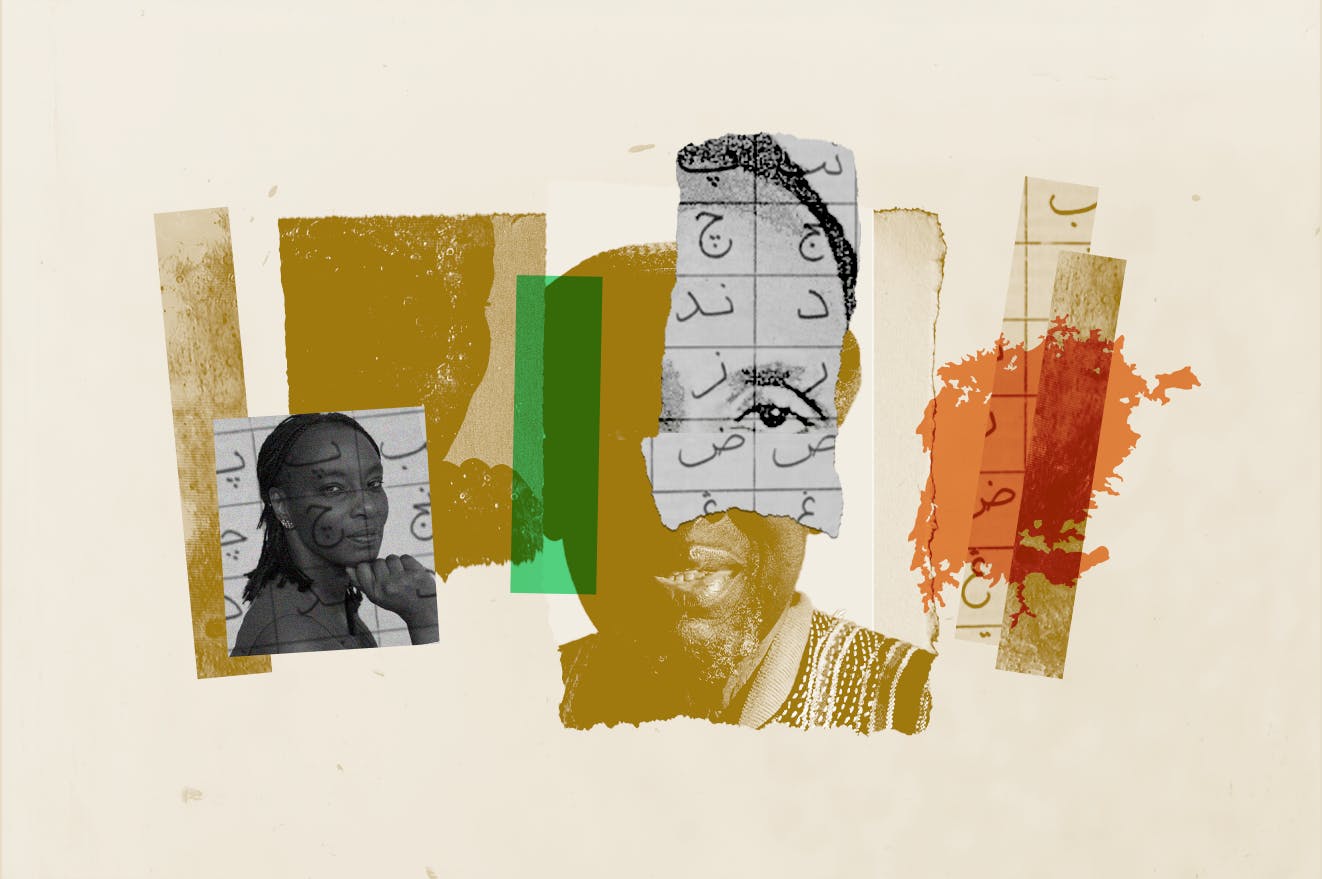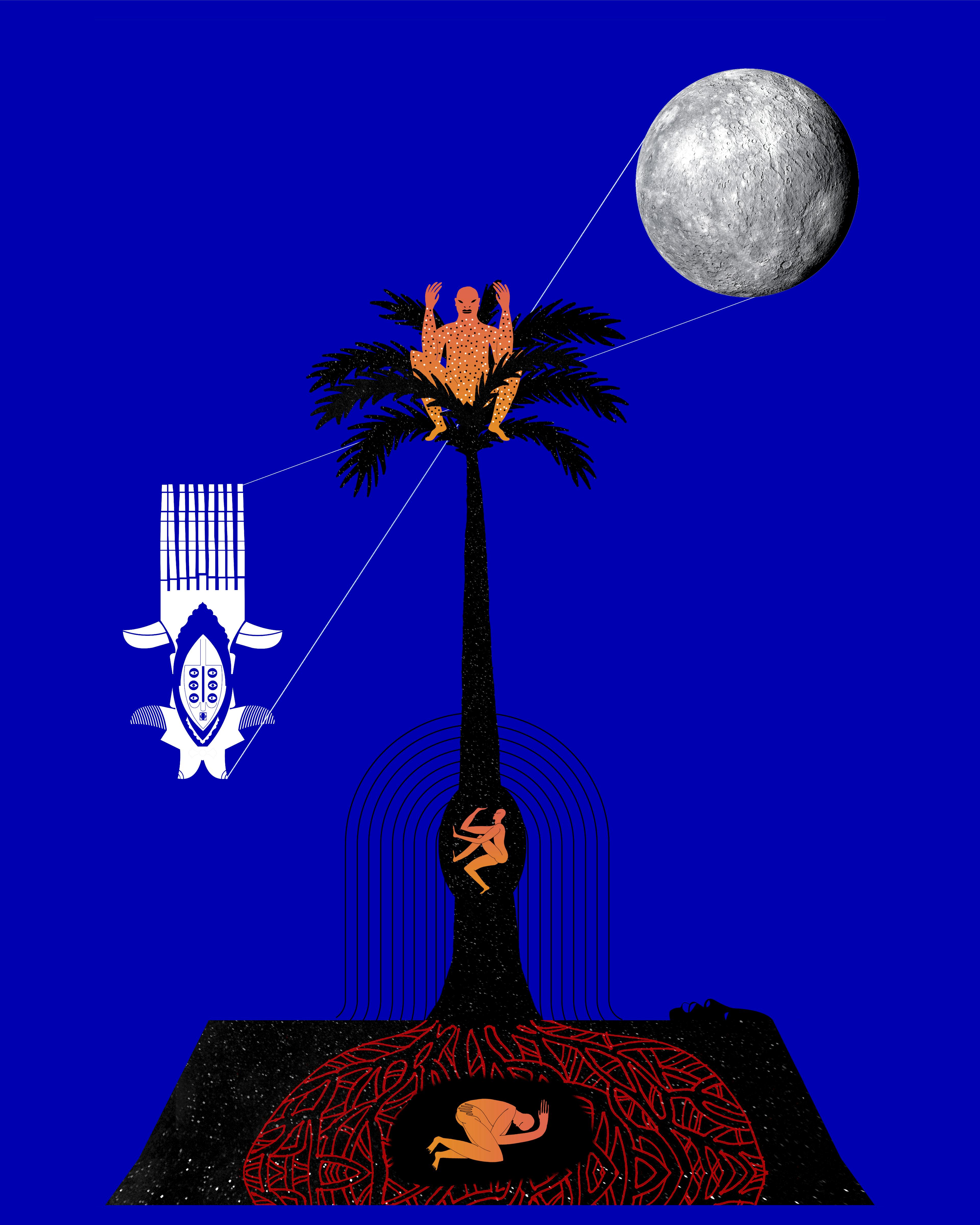Black Self-Determination Through and Beyond the Nation-State
Nation-states of the world beyond the West, in theory, are part of the international order, yet this inclusion has been and remains on an unequal basis, thwarting possibilities for statehood to serve as a means to self-determination for Black and similarly racialised people. In this article, T. O. Molefe provides an overview of the issues and what is at stake.

This year marked 220 years since the proclamation of independence in Haiti, the first free Black nation-state founded after the dawn of Europe’s ‘age of discovery’. But there’s been little to celebrate, according to Micherline Islanda Aduel, an organiser at Tet Kole Ti Peyizan Ayisyen (TK), a Haitian affiliate of the international peasant farmer movement La Via Campesina. Speaking online from Haiti earlier this year at a conference in Switzerland focused on anti-colonial struggles in the global South, Islanda lamented the role of foreign powers, local autocrats and armed gangs in making life unbearably hard for the country’s nearly 12 million inhabitants. The conference coincided with the 55th session of the United Nations Human Rights Council, where, led by Islanda, TK and other Haitian peasant farmer movements, together with research and advocacy organisation Centre Europe-Tiers Monde, delivered a statement calling, among other demands, for “an immediate end to [foreign] interference the country’s affairs” and for the international community to respect and uphold the right of Haitian people to self-determination.
That people in the world’s first Black nation-state of the ‘modern’ era are, more than two centuries later, still engaged in struggles for self-determination and against foreign interference is troubling. After all, one of the founding ideas of the current international order is that the world is made of independent sovereign states that are all equal under law. Yet Haiti’s centuries-long plight always called that into question.
“Throughout its history, Haiti has endured a series of external interventions that have eroded its sovereignty and directly led to the current crisis,” Aduel and her co-author Doudou Pierre Festile wrote in Al Jazeera in April. They recount this history, from France’s gunboat diplomacy in 1825 when it demanded 150 million francs in exchange for recognising Haiti’s independence, through to the US invasion and occupation from 1915 to 1934, successive UN peacekeeping missions, structural adjustment programmes, and up to the 2004 coup that saw the removal of Jean-Bertrand Aristide as president. They also decry the outsize role that the UN’s Core Group—a body made up of mostly Western powers—has had on Haiti since then, presaging the further collapse of the state and rise of armed gangs.
Aduel and Festile contend that the only way for Haiti’s political and economic situation to improve is through a return to a government that reflects the will of its people.
The desire for self-determination is arguably an inextricable part of being human. Whether as individuals or members of a group, human beings derive a sense of self from having some measure of control over their own destiny. However, as a concept in international law, which has been influenced heavily by historical developments in western Europe, self-determination by most accounts emerged alongside the 17th-century rise of national identity as a claim to belonging, territory and rights, and it was further entrenched in subsequent waves of revolution. After World War II, self-determination was a founding principle in the 1945 Charter of the United Nations but without any clear indication of its meaning nor how it should be realised. There it lingered as an ideal that did not reflect the realities of a world in which 750 million people—a third of the global population in 1945—lived under colonial rule.
According to Adom Getachew, author of Worldmaking After Empire, it was only through efforts of Black thinkers of the mid-twentieth-century decolonization movement that self-determination came to signify more. Getachew argues that thinkers such as Kwame Nkrumah, Julius Nyerere and Nnamdi Azikiwe sought to ennoble self-determination, having seen from the experiences of Haiti, Liberia and Ethiopia—three independent Black states of that time—that statehood was necessary but alone was insufficient. These thinkers linked the fulfilment of self-determination as a human right to the end of imperialism as a system of domination marked by unequal economic and political integration into an international order that increasingly based on racial hierarchy. Evidence of racial hierarchy in the international order, what WEB du Bois called the global colour line, came in the form of the 750 million racialised people subject to white European rule in 1945 and the historical inclusion of people of the rest of the world into global governance institutions on an unequal basis—for instance, the veto power wielded by the five permanent members of the UN Security Council, the only UN body that can issue binding resolutions.
Rearticulating self-determination in this way necessitated the creation of “juridical, political and economic institutions in the international realm” that would ensure freedom from domination and “marked a radical break from the Eurocentric model of international society” built around nominally independent and equal states, Getachew writes. In 1960, these efforts culminated in the UN General Assembly adopting Resolution 1514, the Declaration on the Granting of Independence to Colonial Countries and Peoples, credited for providing a bulwark against arguments that people of Europe’s colonies were either inherently incapable or not yet ready to govern themselves. This, the ennobling and institutionalisation of self-determination at the UN, also provided a foundation to pursue what Getachew calls anti-imperialist worldmaking through other means, namely regional federations in the West Indies and Africa and the demand in 1974 for a New International Economic Order, a set of proposals by developing countries for more just and equitable global economic relations and reforms.
For reasons of their own and external design, these thinkers’ vision of a post-imperial world order did not materialise, and we are now “in the shadow of the fall of self-determination,” Getachew writes.
The charge that the international order is marked by racial hierarchy has not dampened desire to be included in it, however. From Haiti to West Papua, South Africa to Palestine, and in the 17 remaining non-self-governing territories recognised by the United Nations, self-determination through statehood, albeit in different configurations, driven by differing concerns and with different objectives, still holds appeal.
In West Papua—a former Dutch colony that since 1999 has been a province of Indonesia, itself a former Dutch colony—the struggle from independence from external rule rages on, as Nathan Rew notes in this issue of Moya in his review of Quito Swan’s Pasifika Black. Similarly, Palestinians have been engaged in a decades-long struggle for self-determination that predates 1947 UN plan to divide Palestine into two states, one Palestinian and the other Jewish. In an essay written before Israel’s recent war on Gaza, during which the International Court of Justice has found it plausible that a genocide is unfolding, Palestinian political scientist Leila Farsakh surveys events since 1970. She argues that the UN plan laid the foundations for a set of circumstances that have stalled and ultimately compromised Palestinians’ right to self-determination—a right so far contingent on the existence of a Palestinian state that none of the global powers appear to have appetite or desire for.
In South Africa, on the other hand, as in Haiti, despite being recognised states putatively equal in law to other states, people still perceive the international order as imperialist and thus an impediment their freedoms as individuals and nations. South Africa’s uMkhonto we Sizwe Party, for instance—which, despite being new, swept to third in this year’s national elections and now holds the title of official opposition in the country’s parliament—has expressed its desire to wield the power of the state in order “to unite all the anti-colonial, anti-imperialist and anti-racist progressive forces in South Africa to fight for the total political, economic, social, spatial, cultural and knowledge/ideological freedom and emancipation”.
Meanwhile, at another conference in Geneva in September 2024 hosted by CETIM together with Pan-African League-Umoja, the recently formed Confederation of Sahel States—an alliance forged by the leaders of recent coups in Mali, Niger and Burkina Faso—came into focus. Keynote speaker Amzat Boukari-Yabara, a historian of Francafrique, a term that describes France’s ongoing influence in the domestic affairs of its former colonies, argued that the popular support that recent coups in these countries enjoyed marks an opportunity to break from France’s neocolonial grip and to move toward new models of self-directed development.
It remains to be seen whether, how and to what extent any of these ongoing struggles through statehood portend a remaking of the international order into one compatible with a world in which self-determination is a universal experience. But there is enough to confirm that the thinkers in Getachew’s Worldmaking After Empire were right: there are limits to statehood as a means to self-determination for Black and similarly racialised people of the world.
And if statehood in and of itself is no guarantee that Black and similarly racialised people as individuals and as groups can determine their own destiny, then what is? Getachew suggests a return “to the task of rethinking our imperial past and present in service of imagining anti-imperial futures”. The issue here is less about the limitations of the nation-state and more about needing to look within and beyond for new ways of relating at different scales that break from hierarchies and domination. In the mid of the crises and conflicts of the current international order, this is a task that is as necessary as it is urgent.



